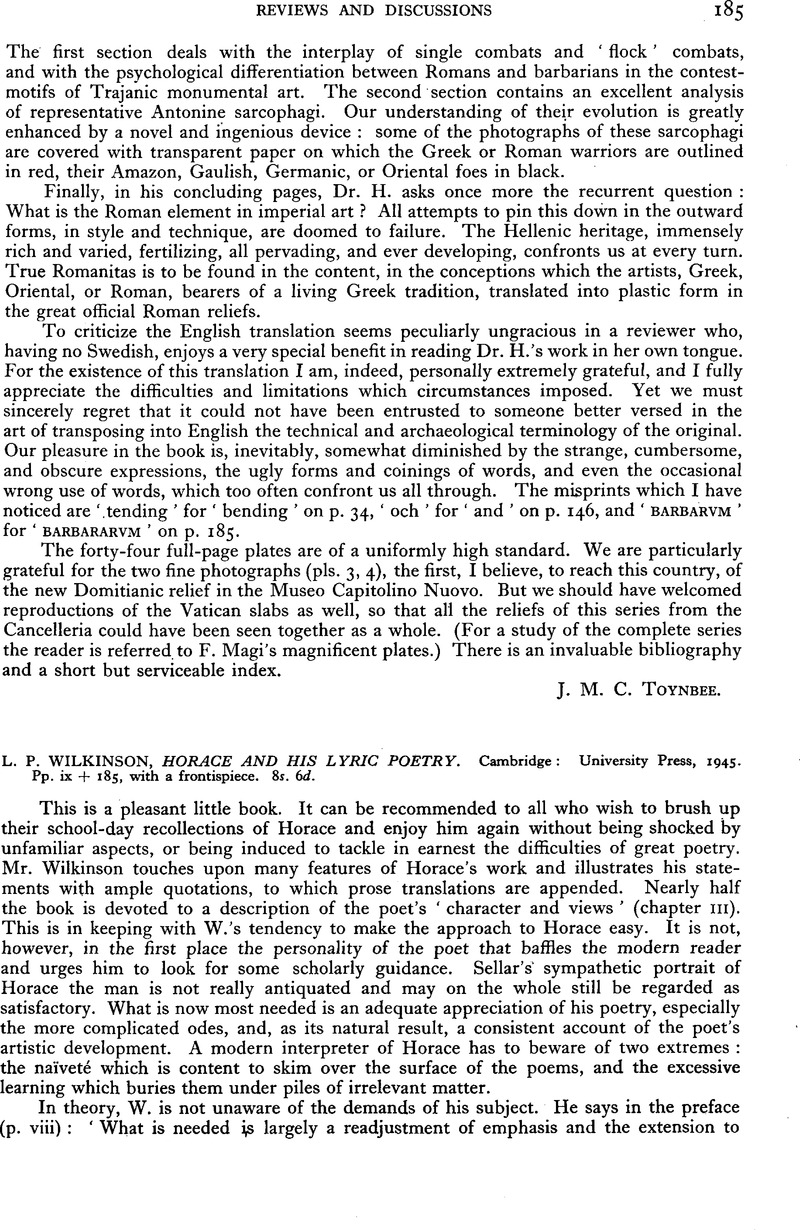No CrossRef data available.
Article contents
Published online by Cambridge University Press: 24 September 2012
Abstract

- Type
- Reviews and Discussions
- Information
- Copyright
- Copyright © Eduard Fraenkel 1946. Exclusive Licence to Publish: The Society for the Promotion of Roman Studies
References
1 See the penetrating analysis by Jacoby, F., Hermes 56, 1921, 35 ff.Google Scholar
2 Here again W. adopts familiar patterns. Mackail (Latin Literature 116) thought that ‘the Jubilee Ode written by Lord Tennyson’ was in more than one respect ‘curiously like the Carmen Saeculare’.
3 The italics are mine: they mark the points on which the authorities mentioned by W. in his two footnotes do not bear out the assertions of his text.
4 Cf. e.g. the resigned attitude of Tarn, W. W. in JRS 22, 1932, 152Google Scholar, and for a more recent display of complete despair see Rose, H. J., The Eclogues of Vergil (Univ. of California Press, 1942) 259Google Scholar, n. 72.
5 Büchner's criticism (Bursian's, Jahresberichte, Suppl. 267, 1939, 164 f.Google Scholar) shows that he is not sufficiently familiar with the technique of Virgil's eclogues and has therefore not grasped the force of Snell's arguments.
6 Kiessling's view seems to me much sounder.
7 I believe that, despite the important work done in the meantime, we may still regard as valid the verdict passed by Castiglioni, L. (Atene e Roma 17, 1914, 228Google Scholar, n. 1) on those twenty pages in the book of Wilamowitz: ‘la cui trattazione dei rapporti tra il Venosino e la lirica greca mi pare, nel complesso, la più bella e la più degna che si potesse desiderare; di tanti vieti pregiudizi ha fatto giustizia, tanti particolari ha messo nella loro giusta luce.’
8 W.'s brief statement on p. 107 sounds different: ‘Occasionally he wrote a poem consciously in the manner of some poet, as i, 15 (Pastor cum traheret) in the manner of Bacchylides,’ etc.
9 W. foists this idea on Plüss and refers in a foot-note to that scholar's Horazstudien. But Plüs says nothing of the kind. It was Kiessling who identified the Ilion in Juno's speech with the ‘Rom der Optimatenzeit’. The expression, though not the view connected with it, was taken over by Heinze, and found its way from there into W.'s book.




